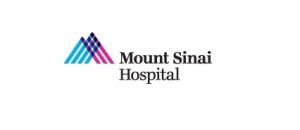por
Lauren Dubinsky, Senior Reporter | January 29, 2015
For those suffering from type 1 diabetes this is app, which can regulate insulin flow from their pumps while they sleep, is sweet music to their ears.
The disease disrupts sleep because patients typically adjust their insulin delivery based on glucose readings, but they can't while they sleep. By automating the process, the UVA AP system could be a sleep - if not a life - saver.
That's because the key to managing diabetes is having appropriate levels of insulin in the body. People fast as they sleep and nighttime hypoglycemia can cause seizures, and coma or death in rare cases, among the more than three million Americans with type 1 diabetes.




Ad Statistics
Times Displayed: 9389
Times Visited: 85 Stay up to date with the latest training to fix, troubleshoot, and maintain your critical care devices. GE HealthCare offers multiple training formats to empower teams and expand knowledge, saving you time and money
The app is being tested in a just-launched study at the Icahn School of Medicine at Mount Sinai, the University of Virginia (UVA) and Mayo Clinic.
The outpatient study, the first of its kind in New York, began enrollment in October 2014. The ongoing study is measuring the ability of an automated artificial pancreas system, developed by UVA, to normalize nighttime sugar.
By combining a smart phone app with a unique algorithm for controlling blood sugar levels, a glucose sensor and an insulin pump, the system is designed to maintain sugar levels without requiring patients to frequently test their blood sugar levels or inject insulin themselves.
"The goal is for people with type 1 diabetes using the UVA AP system to show superior glucose control, reduced hypoglycemia overnight, and for significantly longer periods compared to standard therapy," Dr. Carol Levy, associate professor of medicine, endocrinology, diabetes and bone disease at the Icahn School of Medicine at Mount Sinai, and lead investigator, said in a statement. "If these patients can achieve stable glucose levels between 80-140mg/dl during the night, we expect this will lead to improved blood sugar control throughout the next day as well."

